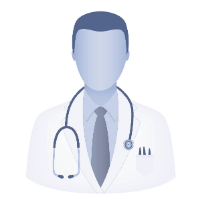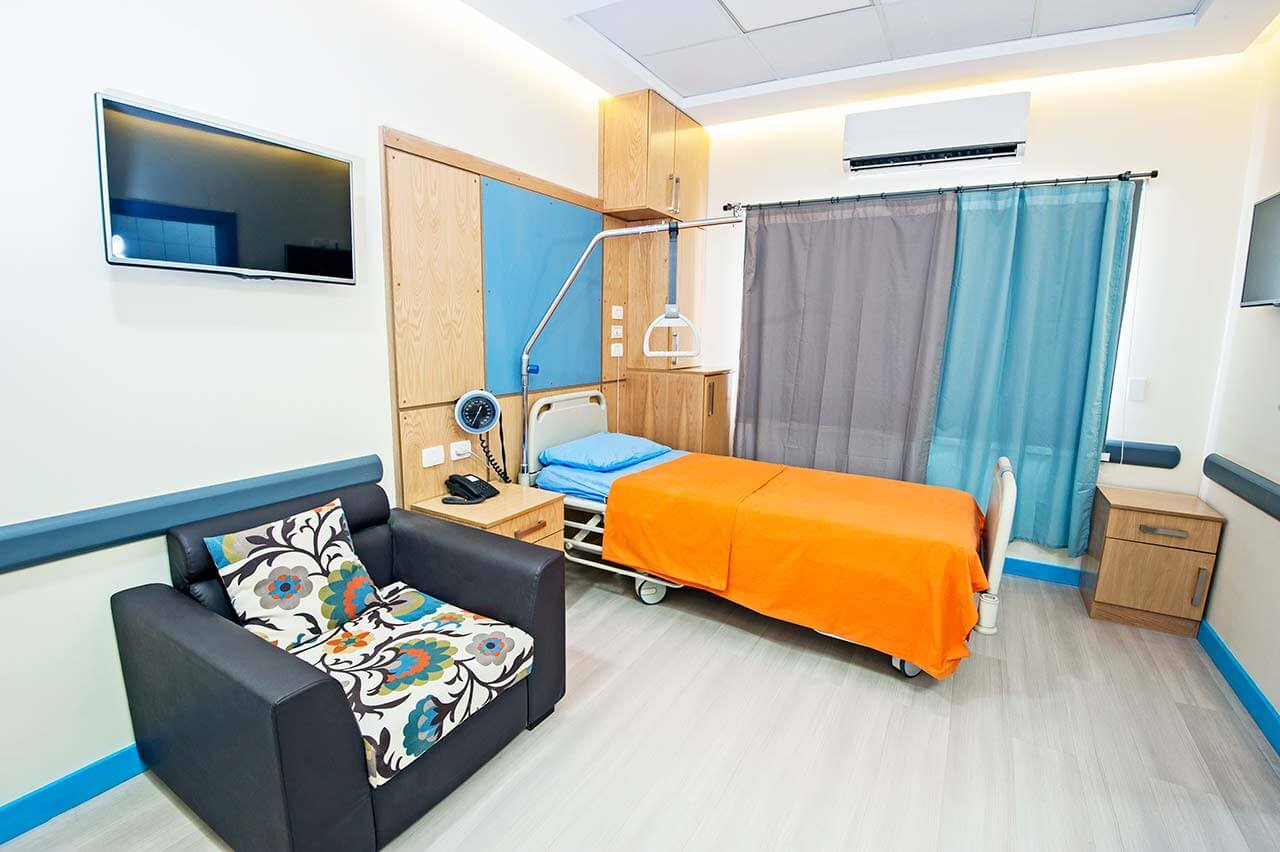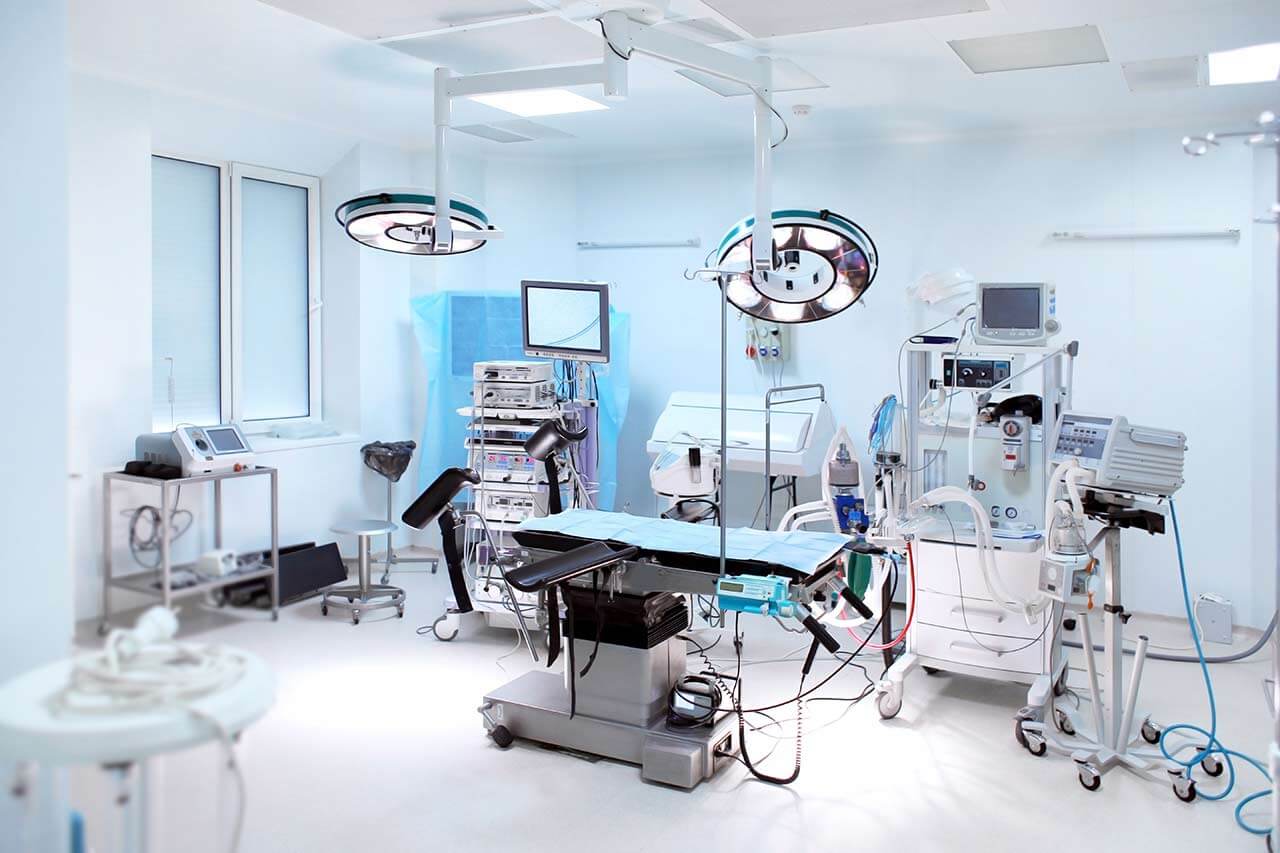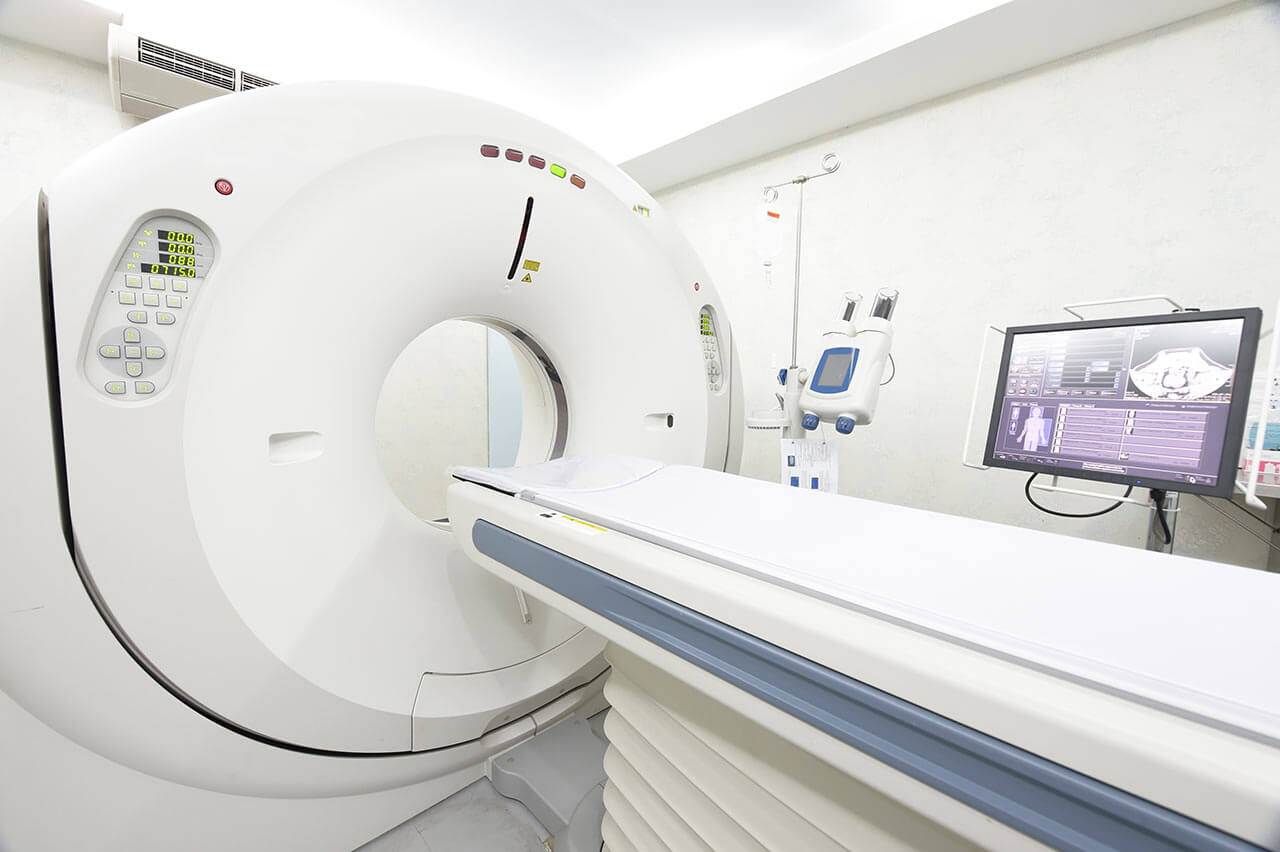
The program includes:
- Initial presentation in the clinic
- clinical history taking
- review of medical records
- physical examination
- laboratory tests:
- complete blood count
- general urine analysis
- biochemical analysis of blood
- blood smear
- TSH-basal
- inflammation indicators
- indicators blood coagulation
- CT scan of full body
- ultrasound of spleen
- immunophenotyping of lymphocytes
by flow cytometry - cytogenetic analysis with standard
karyotyping - cytogenetic analysis for philadelphia
chromosome detection - aspiration biopsy of bone marrow
- chemotherapy and immunotherapy (1 curse)
- symptomatic treatment
- control examinations
- cost of essential medicines and materials
- nursing services
- full hospital accommodation
- explanation of future recommendations
Required documents
- Medical records
- MRI/CT scan (not older than 3 months)
- Bone marrow biopsy results (if available)
Service
You may also book:
 BookingHealth Price from:
BookingHealth Price from:
About the department
The Department of Hematology and Blood Stem Cell Transplantation at the University Hospital Carl Gustav Carus Dresden offers the full range of services in these medical fields. The department specializes in the treatment of malignant diseases of the hematopoietic and lymphatic systems. In addition, the tasks of the department's doctors include the treatment of rare benign pathologies, congenital and acquired hematopoiesis disorders. The department's therapeutic options include modern types of chemotherapy, immunotherapy and targeted therapy. The department is the largest and one of the most reputable medical facilities in Germany, specializing in allogeneic and autologous blood stem cell transplantation (European JACIE certification). Stem cell transplantation is carried out within a special laboratory, where hygiene and safety standards are strictly met. All doctors and nursing staff working in the department make sure that each patient receives the best possible medical care and regains his health. The department is headed by Prof. Dr. med. Frank Kroschinsky.
The primary focus of the department's clinical practice is on the treatment of acute and chronic leukemias: acute myeloid leukemia, acute lymphoblastic leukemia, chronic myeloid leukemia and chronic lymphocytic leukemia. At the early stages of leukemia, there are no symptoms – the pathology does not manifest itself in any way and is often diagnosed accidentally during examination for other diseases. If leukemia is suspected, such tests as a complete blood count, coagulogram, immunogram, cytogenetic and cytochemical tests, ultrasound scans, computed tomography and magnetic resonance imaging are indicated to the patient. A bone marrow puncture is also performed. The department's doctors have in their arsenal many effective treatment methods for leukemia. The choice of treatment regimen is influenced by the particular type of leukemia and its course, the stage of the oncological process, the degree of damage to the internal organs and the general health condition of the patient. The treatment regimen for each patient is developed individually. The department's doctors successfully use such treatment methods as chemotherapy, targeted therapy and immunotherapy. The last-line treatment is stem cell transplantation.
The department's specialists also provide all modern diagnostic and therapeutic services for patients with Hodgkin's and non-Hodgkin's lymphomas, multiple myeloma and myelodysplastic syndrome. All these diseases are hematopoietic cancers and require comprehensive treatment. As a rule, doctors use modern chemotherapy drugs, targeted therapy and stem cell transplantation. The intensity and duration of the course of treatment depends on the patient's diagnostic results and the stage of cancer.
The patients undergoing inpatient treatment are offered specialized physiotherapy, psycho-oncological care and art therapy. With appropriate indications and if desired, the patient can take part in clinical trials of progressive drugs and treatment methods. It should be noted that the department carries out continuous fruitful research activities in the field of immunotherapy and the use of stem cells (donor or patient's own stem cells that have undergone special processing).
It should be noted that the department has specialized laboratories for a number of diagnostic tests of the hematopoietic and lymphatic systems. The experts have special competence in the field of cytological and cytochemical bone marrow examinations, cytogenetic and molecular genetic tests. The department carries out accurate diagnostics, based on the results of which an optimal treatment regimen is developed, corresponding to the patient's individual needs and wishes.
The department's key clinical focuses include:
- Diagnostics and treatment of acute and chronic leukemia
- Acute myeloid leukemia
- Chronic myeloid leukemia
- Acute lymphoblastic leukemia
- Chronic lymphocytic leukemia
- Diagnostics and treatment of Hodgkin's and non-Hodgkin's lymphomas
- Diagnostics and treatment of multiple myeloma (plasmacytoma)
- Diagnostics and treatment of myelodysplastic syndromes
- Diagnostics and treatment of rare benign pathologies, congenital or acquired hematopoietic disorders
- Diagnostics and treatment of coagulation disorders
- Hemophilia A and B
- Von Willebrand disease
- Platelet dysfunction (thrombocytopathy)
- Hemorrhage of unknown origin during operations and other procedures
- Coagulation disorders during pregnancy
- Complex disorders of hemostasis in hematological and other diseases
- Other diseases
The department's range of therapeutic services includes the following options:
- Chemotherapy
- Immunotherapy
- Targeted therapy
- Stem cell transplantation
- Allogeneic blood stem cell transplantation
- Autologous blood stem cell transplantation
- Mesenchymal stem cell therapy
- Regulatory T cell therapy
- CAR T cell therapy
- Participation in clinical trials
- Special physiotherapeutic treatment course
- Psycho-oncological care
- Other medical services
Photo: (с) depositphotos
About hospital
According to the reputable Focus magazine, the University Hospital Carl Gustav Carus Dresden ranks among the top five German hospitals!
The hospital is the benchmark for modern high-quality medicine. Positioning itself as a maximum care medical facility, the hospital represents all medical fields. There are 26 specialized departments, 6 institutes and 17 interdisciplinary centers, which cooperate closely with the clinical and scientific facilities of the Faculty of Medicine. The basis of successful practice is excellent equipment, which is regularly updated, as well as highly qualified, experienced medical personnel: world famous doctors and professors work here for the benefit of patients.
In addition to its main goal of caring for patients, the hospital is also active in training and professional development of medical personnel, as well as in the field of public health care. The priority focus of the work is research activity, which allows the doctors to introduce the innovative diagnostic and therapeutic techniques into clinical practice.
A special feature of the hospital is also the diagnostics and treatment of rare diseases. State-of-the-art equipment and well-coordinated work of doctors of various medical specialties make it possible to timely recognize pathologies rarely encountered in medical practice and select the most effective therapy. Specialization in rare diseases include neurology, endocrinology, hematology/oncology, and rare autoimmune diseases.
The hospital has 1,410 beds for patient hospitalization. About 55,900 inpatients and more than 233,975 outpatients undergo treatment here annually. A large medical team, consisting of about 1,000 highly qualified doctors, as well as over 2,000 nursing staff take care of the patients' health. Each patient is guaranteed an individual approach and the most effective treatment in accordance with current clinical protocols.
It should be noted that the university hospital enjoys an impeccable reputation not only in Germany, but also far beyond its borders, including Arab countries, post-Soviet states, Great Britain and the United States. Patients from different parts of the world come here for high-quality treatment for diseases of any severity. The highest credit of patient confidence is the main indicator of the fruitful work of doctors.
Photo: (с) depositphotos
Accommodation in hospital
Patients rooms
The patients of the University Hospital Carl Gustav Carus Dresden live in comfortable rooms made in bright colors and equipped with everything necessary. The standard patient room includes an automatically adjustable bed, a bedside table with a sliding table, a wardrobe, a telephone and a TV. There is also Wi-Fi (free) in the patient rooms.
If desired, patients may live in enhanced comfort patient rooms. These patient rooms have a more sophisticated design, upholstered furniture and a safe for storing valuables.
Meals and Menus
The patients of the hospital are offered a tasty, healthy and varied three meals a day. The menu is based on local cuisine and seasonal food. If you for some reason do not eat certain products, please inform the medical staff of the hospital in advance, and you will be offered an individual menu. The nutrition provided in the hospital is certified in accordance with the quality standards of the German Nutrition Society (DGE) for catering in German hospitals.
Further details
Standard rooms include:
Religion
The religious services are available upon request.
Accompanying person
Your accompanying person may stay with you in your patient room or at the hotel of your choice during the inpatient program.
Hotel
You may stay at the hotel of your choice during the outpatient program. Our managers will support you for selecting the best option.
The hospital offers a full range of laboratory diagnostic procedures (general, hormonal, tests for tumor markers, infections, antibodies, etc.), genetic tests, various modifications of ultrasound scans, CT scans, MRI and PET / CT, angiography, myelography, biopsy and other examinations. Treatment with medications, endoscopic and robotic operations, stereotaxic interventions is carried out here, modern types of radiation therapy are also used. The hospital offers patients all the necessary therapeutic techniques.
- Cochlear implantation
- Deep brain stimulation
- Treatment of benign prostatic hyperplasia with green laser
- Da Vinci prostatectomy
- Bone marrow transplantation
These are head and neck tumors, hearloss, amyotrophic lateral sclerosis, epilepsy, Parkinson disease, infertility, malignant tumors of the reproductive system, congenital anomalies of the genital organs and the urinary system, urinary incontinence, blood clotting disorders, leukemia and other pathologies.
- Otolaryngology (Center for Cochlear Implantation)
- Neurology and Epileptology
- Urology
- Oncology
- Gastroenterology and Hepatology
About 1,000 highly qualified doctors work at the hospital.





